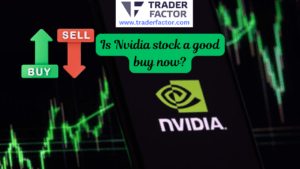If you’re interested in investing in robotics, Boston Dynamics might catch your eye. But as a privately held company under Hyundai, its stock may not be an option. That doesn’t mean you’re out of choices. The robotics industry is booming, driven by advancements in AI and automation. Publicly traded companies like Nvidia and ABB are leading the charge with groundbreaking technologies in sectors such as healthcare, manufacturing, and logistics. You’ve likely seen headlines about the growing push for industrial automation and AI-powered solutions, making robotics stocks increasingly relevant. This discussion delves into these companies to offer a glimpse into how tech is reshaping our economies and workflows. Read on.
Key Takeaways:
Boston Dynamics IPO: There has been no announcement of an initial public offering (IPO) for Boston Dynamics, so it remains privately held under Hyundai.
Hyundai Motor Group Stock: Investing in Hyundai stock could be a way to gain exposure to Boston Dynamics’ robotics advancements, as Hyundai is heavily investing in robotics and automation.
Robotics Stocks: If you’re interested in the broader robotics and AI market, you might explore other publicly traded companies in the robotics and automation sector.
Future of Robotics in Stock Market: Boston Dynamics could potentially go public in the future, which would make it a direct investment opportunity for those interested in robotics stocks.
Table of Contents
ToggleTop Publicly Traded Robotics Companies Stocks To Buy Now
The robotics industry is thriving, blending cutting-edge technology with real-world applications that are changing the way businesses operate. While Boston Dynamics is often the first name that comes to mind when you think of robots, it’s not on the stock market for investment since it’s owned by Hyundai.
Here’s a closer look at 10 key players that offer exciting opportunities for those interested in robotics investments.
| Stock Name | Ticker | Price (USD) | Market Cap (USD) | Sector |
|---|---|---|---|---|
| Nvidia | NVDA | 170.76 | 4.157 Trillion | Semiconductors |
| Intuitive Surgical | ISRG | 467.54 | 167.602 Billion | Healthcare Technology |
| ABB | ABBN.Y | 70.15 | 127.95 Billion | Industrial Equipment |
| Rockwell Automation | ROK | 342.95 | 38.56 Billion | Industrial Automation |
| Zebra Technologies | ZBRA | 312.17 | 15.96 Billion | Automation Solutions |
| Teradyne | TER | 115.07 | 18.305 Billion | Industrial Equipment |
| PTC | PTC | 204.03 | 24.44 Billion | Software Technology |
| UiPath | PATH | 11.90 | 6.367 Billion | Software Automation |
| Boston Scientific | BSX | 108.09 | 160.16 Billion | Medical Devices |
| iRobot | IRBT | 3.39 | 0.1 Billion | Consumer Robotics |
Source: Nasdaq
Semiconductors & AI: A Clear Market Leader
Nvidia (NVDA): Unmatched Market Dominance
With a stock price of $170.76 and a staggering market capitalization of $4.157 Trillion, Nvidia is the undisputed leader in this analysis. This valuation reflects its critical role in the artificial intelligence revolution, data centers, and high-end computing. The semiconductor sector, particularly for AI applications, is experiencing unprecedented growth, and Nvidia’s market position suggests it is the primary beneficiary of this trend. Its valuation alone indicates a market sentiment that is exceptionally bullish on the future of AI.
Healthcare Technology: High-Value and Stable
Intuitive Surgical (ISRG)
Priced at $467.54 with a market cap of $167.602 Billion, Intuitive Surgical remains a powerhouse in the medical devices field. The company’s leadership in robotic-assisted surgery continues to command a premium valuation, reflecting strong demand and a wide competitive moat in the healthcare technology space.
Boston Scientific (BSX)
Trading at $108.09 with a market cap of $160.16 Billion, Boston Scientific shows comparable strength. The company’s diverse portfolio of medical devices across various specialties supports its high valuation. Together, ISRG and BSX paint a picture of a resilient and highly valued medical technology sector.
Industrial Equipment and Automation: A Mixed Landscape
ABB (ABBN.Y)
At $70.15 per share and a market cap of $127.95 billion, ABB holds a strong position in the industrial equipment and automation market. As a global player in electrification and automation, ABB’s valuation reflects its integral role in the ongoing modernization of industries worldwide.
Rockwell Automation (ROK)
Rockwell Automation, trading at $342.95, has established itself as a solid contender in the industrial automation sector. While its exact market cap is still being finalized, its high stock price signals significant investor confidence and a reputation for delivering reliable automation solutions.
Zebra Technologies (ZBRA)
With a price of $312.17 and a market cap of $15.96 billion, Zebra Technologies specializes in automation and enterprise visibility solutions. Although its valuation is more modest compared to the industrial giants, Zebra remains a key player in its niche, supporting businesses with critical identification and tracking technologies.
Teradyne (TER)
Teradyne, priced at $115.07 and a market cap of $18.305 billion, is another important name in the sector. Its focus on automated test equipment is a vital, though less visible, element of the broader technology supply chain, supporting the development and quality assurance of advanced electronics.
This group indicates that while foundational industrial automation remains a valuable market, valuations are more moderate compared to the high-growth AI and specialized healthcare sectors.
Software and Consumer Robotics: Diverging Fortunes
PTC (PTC)
With a stock price of $204.03 and a market cap of $24.44 Billion, PTC demonstrates solid performance in the enterprise software space, particularly in CAD and PLM solutions. This valuation points to healthy demand for specialized industrial software.
UiPath (PATH)
Trading at $11.90 with a market cap of $6.367 Billion, UiPath represents the more volatile nature of the software automation market. Despite being a leader in Robotic Process Automation (RPA), its valuation is significantly lower than its enterprise software peers, suggesting the market is still cautiously assessing its long-term profitability and growth trajectory.
iRobot (IRBT)
At just $3.39 per share and a market cap of $0.1 Billion (or $100 Million), iRobot is the clear underperformer in this analysis. The consumer robotics market appears to be under significant pressure, facing intense competition and margin compression. This low valuation signals major challenges and a bearish outlook from investors.
Key Observations and Market Sentiment Dominance of AI
The market is overwhelmingly positive about companies at the heart of the AI boom. Nvidia’s trillion-dollar valuation eclipses all others, positioning it in a league of its own. This incredible growth underscores how investor sentiment has shifted toward technologies powering artificial intelligence and next-generation computing, rewarding leaders with aggressive valuations.
Resilience in Healthcare
Medical technology, particularly in specialized fields like robotic surgery and essential medical devices, continues to be a stronghold for investors. The impressive market capitalizations of companies such as Intuitive Surgical and Boston Scientific reflect the market’s confidence in healthcare tech as a stable, valuable long-term investment. These firms are seen as safe bets in an otherwise selective environment.
Pragmatism in Industrial Automation
Valuations in the industrial and enterprise automation sectors remain healthy but are more conservative compared to high-growth tech leaders. Investors clearly acknowledge the importance of companies like ABB, Rockwell Automation, Zebra Technologies, and Teradyne as the backbone of industrial modernization. However, the market is not granting them exponential growth multiples, instead rewarding operational stability and enduring relevance.
Volatility in Software and Consumer Goods
The software automation sector, exemplified by companies like UiPath, and the consumer robotics industry, represented by iRobot, face a notably more skeptical market. While established enterprise software providers such as PTC continue to perform reliably, newer automation platforms and consumer-facing technology are under greater scrutiny. Investors are judging these businesses more harshly based on their profitability, scalability, and ability to sustain momentum amid fierce competition.
How to Buy Boston Dynamics in 2025
Boston Dynamics has long captured public imagination with its incredible robots like Spot, Atlas, and Handle. From executing precise movements to tackling industrial automation, Boston Dynamics regularly makes headlines. Yet, for all its innovation, buying Boston Dynamics stock is not an option right now. Why? Because it’s a privately held company owned by Hyundai. Still, let’s break this down to uncover what the future might hold for those hoping to see Boston Dynamics go public.
The Boston Dynamics Stock Puzzle
If you’re searching for the Boston Dynamics stock price today or the elusive Boston Dynamics stock symbol, you’re bound to hit a dead end. Boston Dynamics is not listed on any stock exchange, meaning no stock price exists, and no ticker symbol has been assigned. Since Hyundai acquired an 80% stake in the company in 2020, it’s been securely under the umbrella of the South Korean automaker, alongside its subsidiaries specializing in robotics and mobility.
This private ownership means investors can’t access a Boston Dynamics stock price chart or review any Boston Dynamics stock price history as they would for publicly traded companies. The company operates independently, focusing on research, development, and contracts without the transparency of quarterly earnings reports or open market valuation.

Why Isn’t Boston Dynamics Public?
The decision not to go public likely stems from the capital-intensive nature of robotics. Large-scale investments are often better supported by private backing rather than the volatility of public markets. Hyundai’s significant resources have allowed Boston Dynamics to thrive and expand its offerings while avoiding the pressures of shareholder demands.
Nevertheless, in the backdrop of rising global demand for robotics in industries like logistics, construction, and healthcare, many investors wonder about the potential for a Boston Dynamics IPO date.
Speculating on a Boston Dynamics IPO in 2025
The robotics and artificial intelligence sectors are red-hot, with companies like Nvidia and UiPath attracting significant market interest. Could Boston Dynamics follow suit with a public listing? So far, there’s been no official announcement of an IPO. However, if Boston Dynamics were to go public, it would likely generate a frenzy on Wall Street, given its reputation and technological advancements.
A potential IPO could lead to Boston Dynamics receiving a dedicated ticker symbol and cementing its position as a robotics leader. Analysts speculate that this move might align with Hyundai’s larger vision to establish a foothold in the automation market. A public offering would provide investors with a fresh way to capitalize on the booming demand for robotics and AI.

The Potential Value of Boston Dynamics
If a public market debut were to occur, estimating the company’s net worth would be crucial. According to industry insiders, Boston Dynamics is valued at over $1 billion, thanks to its advanced technologies and groundbreaking robots. This valuation could significantly rise if the company scales its operations or breaks new ground in automation tools. However, until an IPO happens, Boston Dynamics’ net worth is just an indicator for speculative value.
What Would Investing in Boston Dynamics Look Like?
While you can’t buy Boston Dynamics shares directly today, an IPO would open avenues for individual and institutional investors alike. Using methods like reviewing a Boston Dynamics stock prediction, studying the company’s projected growth curve, and comparing it to competitors would be key. Robotics companies like ABB or Rockwell Automation provide potential benchmarks for what Boston Dynamics may look like upon a successful IPO.
If you’re determined to invest in robotics while waiting for Boston Dynamics to enter public listings, you may want to consider companies already driving industry automation as alternative options.

A Waiting Game for Investors
The thought of a Boston Dynamics stock price chart or the excitement of buying its stock is certainly enticing. But for 2025, it still remains in the realm of speculation. Keep your eyes on news around Hyundai’s plans, industry IPOs, and Boston Dynamics’ strategic direction. Until then, robotics investors must explore other options while imagining the possibilities that could come with Boston Dynamics ultimately entering the market.
For now, it’s a waiting game, but for those interested in tech revolutions, Boston Dynamics remains a name to watch.
What Are Humanoid Robot Stocks and Why Invest in Them?
Humanoid robot stocks represent shares in companies that are directly or indirectly involved in the development, production, or supply chain of humanoid robots. These advanced machines are designed to mimic human appearance and perform tasks typically carried out by people. Equipped with sensors, cameras, actuators, AI chips, and motion control systems, humanoid robots combine physical and cognitive abilities to operate in various work environments. This includes industries like healthcare, manufacturing, logistics, and even customer service.

Investing in humanoid robot stocks provides an opportunity to be part of a technological revolution that is poised to reshape the global economy. Here, we’ll explore what makes these stocks a promising bet in 2025 and beyond.
Defining Humanoid Robots
Humanoid robots are a type of “embodied AI” or “physical AI.” They are designed to resemble human beings in form and function, with two arms, two legs, a torso, and often a head. This design isn’t arbitrary—our workplaces, factories, and tools are made for human use. By creating robots that replicate the human form, companies can integrate these machines into existing infrastructures without major redesigns.
Coupled with advancements in artificial intelligence, humanoid robot stocks to buy are capable of learning from their environment, responding to complex situations, and even collaborating with human workers. They are not limited to performing repetitive tasks; modern humanoid robots are being trained for problem-solving and physical dexterity, opening the door to more intricate roles.
Why Invest in Humanoid Robot Stocks?
The future of humanoid robots is incredibly promising, and several factors contribute to their attractiveness as an investment opportunity.
1. Explosive Market Potential
The market for humanoid robots is set to grow exponentially in the coming years. Forecasts suggest a rapid increase in humanoid shipments, with tens of thousands of units expected to enter industries such as manufacturing, logistics, and healthcare within this decade. By 2035, millions of humanoid robots may be in operation, driving enormous demand for the hardware, software, and components that power them.

Market analysts predict billions of dollars in revenue for the humanoid sector within a few years, with long-term estimates valuing the industry in the trillions. For investors, this massive potential translates into lucrative opportunities, especially as sectors with labor shortages turn to robots for cost-effective solutions.
2. Advancements in Robotics and AI
Advancements in artificial intelligence and robotics have reached a critical juncture, making humanoid robots not just feasible but efficient. Cutting-edge AI allows robots to process data in real time, enabling them to adapt and make decisions on the fly. Simultaneously, improvements in robotic hardware, such as actuator technology, battery efficiency, and lightweight materials enhance mobility and reduce production costs.
For instance, the combination of AI and robotics is creating robots capable of automating complex processes, from assisting in surgeries to operating elaborate manufacturing systems. These advancements make humanoid robots much more than labor-saving devices, they are becoming essential tools for future innovation.

3. Applications Across Multiple Industries
Humanoid robots are not confined to a single use case; they have applications across a wide range of industries. Let’s break down three of the most significant areas where they are providing value:
- Manufacturing: Many companies are leveraging humanoid robots to optimize assembly lines and handle repetitive or physically demanding tasks. This efficiency reduces labor costs and increases output without compromising quality.
- Healthcare: The healthcare sector is already exploring humanoid robots as assistants in hospitals, elderly care homes, and even surgical rooms. These robots can carry out non-invasive medical tasks, provide patient support, and reduce the strain on healthcare professionals.
- Logistics: From loading and unloading packages to sorting items in warehouses, humanoid robots are playing a significant role in streamlining the supply chain and overcoming labor shortages in logistics.

4. Long-Term Cost Efficiency
While the initial investment in humanoid technology can be high, the long-term cost savings for businesses are considerable. Humanoid robots eliminate many of the recurring costs associated with human workers, such as salaries, benefits, and training. Over time, as production scales up, the price of robots is expected to decline, making them accessible to a broader range of companies.
5. Response to Global Challenges
From labor shortages to an aging global population, humanoid robots are addressing some of the most pressing challenges facing industries today. Robots can fill the gaps left by human workers in vital sectors like healthcare and logistics, ensuring business continuity and resilience in the face of workforce shortages.
6. Highs in Technological Ecosystems
An investment in humanoid robot stocks often extends beyond just robots. The broader ecosystem includes companies that develop AI models, create robotic components like sensors and actuators, and manufacturers who integrate these technologies. This interconnected web increases the overall value and resilience of your investment since progress in one area benefits the broader market.
Top Robotics Stocks 2025 Summary
The stocks leading the robotics sector in 2025 include well-established players that excel in delivering advanced robotics solutions:
- NVIDIA (NVDA): A dominant force in AI-driven hardware, powering industries from healthcare robotics to autonomous vehicles. NVIDIA’s GPUs remain essential for robotics and machine learning applications.
- ABB (ABBN.Y): A leader in industrial automation, ABB continues to innovate with robotics solutions for automotive, pharmaceuticals, and electronics industries.
- Intuitive Surgical (ISRG): Renowned for the da Vinci Surgical System, this company pioneers healthcare robotics, consistently delivering strong results for investors.
Best AI and Robotics Stocks
For those interested in companies that merge robotics and AI:
- UiPath (PATH): Specializes in robotic process automation, applying AI to enhance workflow efficiencies.
- Tesla (TSLA): Through robotics in manufacturing and investments in autonomous technologies, Tesla makes waves in AI-driven applications.
- Boston Scientific (BSX): A key player in integrating AI into surgical robotics, transforming healthcare processes.
Emerging Robotics Companies
Watch for companies entering the robotics space with disruptive solutions:
- Serve Robotics: Focused on delivery robots for urban environments, Serve Robotics is carving its niche in logistics automation.
- Apptronik: Developing humanoid robots for industrial applications, this company is gaining investor interest.
- Agility Robotics: Known for advanced bipedal robots, it’s gaining attention across logistics and supply chain sectors.
Industrial Automation Stocks
Manufacturing industries see continuous innovation from automation leaders:
- Rockwell Automation (ROK): Focused on enhancing manufacturing processes with integrated automation systems.
- Teradyne (TER): Specializes in robotics for precision robotics and automated logistics within warehouses.
Healthcare Robotics Investments
The use of robotics in healthcare significantly impacts physical and financial outcomes:
- Intuitive Surgical: Its minimally invasive surgery systems offer long-term growth potential.
- Medtronic (MDT): Expanding into robotic-assisted surgery, Medtronic is an emerging name worth considering in this niche.
Specific Trends and Niches in Robotics
Robotics isn’t confined to industrial use; innovations are shaping consumer technology, sustainable development, and beyond.
Humanoid Robotics Stocks
Humanoid robots are gaining attention for their ability to mimic human interaction:
- Companies like Apptronik and Agility Robotics develop humanoid robots tailored for roles in warehouses and delivery services.
- Tesla’s Optimus Project: Targeting automation with humanoid functionality, Optimus has sparked speculation about its financial potential.
AI-Driven Robotics Companies
AI integration enhances robotics, allowing machines to adapt and learn:
- OpenAI’s partnerships with robotics startups boost AI-driven innovations in this space.
- SAS and UiPath continue to expand RPA with AI capabilities, making automation workflows smarter and more efficient.
Robotics IPOs 2025
Speculation around potential robotics IPOs includes:
- Boston Dynamics: Often discussed in investment circles, Boston Dynamics remains a privately held and highly watched developer.
- Serve Robotics: Likely a candidate for navigating public markets in coming years.
Sustainable Automation Technologies
Eco-friendly solutions are in demand:
- Companies such as ABB focus on greener manufacturing processes by optimizing energy in automated systems.
- Siemens: A leader in sustainable robotics technologies, reducing environmental impact while enhancing production efficiency.
Robotic Process Automation (RPA) Stocks
Growth in RPA enables businesses to automate tedious tasks:
- UiPath remains a key player, leading in development tools and enabling seamless RPA deployment across multiple industries.
Popular Companies and Sectors
Some of the most successful companies in the robotics space continue to demonstrate their dominance while appealing to investors globally.
NVIDIA Robotics Investments
NVIDIA’s graphic processing units (GPUs) power countless robotics applications:
- Robotics firms depend on NVIDIA’s hardware for computationally heavy tasks like real-time data processing in autonomous systems.
- With an unmatched role in AI-driven hardware, NVIDIA continues to lead in robotics investments.
ABB Industrial Automation
ABB is a giant in robotics, with products that span capabilities like agile movement and fine assembly:
- From automated drug packaging to manufacturing efficiency, ABB innovates across diverse industries.
- ABB’s Yumi cobot gains popularity in collaborative robotics, working alongside humans safely.
Boston Dynamics IPO Speculation
Although still private, Boston Dynamics stirs market interest:
- Its innovations, such as the Spot and Atlas robots, make it a desirable hypothetical IPO.
- Connections with Hyundai further elevate its robotics credibility.
UiPath RPA Trends
UiPath shapes the software robotics world:
- Through versatile developments, UiPath remains a leader in automating business processes.
- Generative AI improvements enable smarter automation, empowering enterprises to refine services.
Consumer Robotics Stocks
Home automation and domestic robot solutions lead this category:
- iRobot (acquired by Amazon): Recognized for Roomba robots, it benefits from the growing trend of smart homes.
- Sony: Its Aibo dog robot positions Sony as a historic yet modern household innovator.
Robotics Investment Opportunities
For long-term success in robotics, it’s important to understand opportunities spanning broader markets and their trends.
How to Invest in Robotics Stocks
For beginners, understanding how to invest is critical:
- Key steps include: identifying growth players, using ETFs like the Global Robotics and Automation ETF (ROBO), and staying informed on tech trends.
Future of Robotics in the Stock Market
The stock market for robotics shows a positive trajectory:
- Projected market size is growing rapidly towards $500 billion by 2030.
- Automation’s role in solving labor shortages fuels greater demand for robotics stocks.
Top Robotics Companies for Long-Term Growth
Some companies stand out for sustainability and innovation:
- NVIDIA, ABB, and Intuitive Surgical are notable examples, focusing on research and scaling current production capabilities.
AI and Robotics Market Trends 2025
Key trends influencing the market this year:
- Increased adoption of autonomous vehicles leveraging robotics for safety and management.
- Humanoid robots entering supply chains.
- The surge in robotic assistants redefining remote assistance and elderly care.
Wrapping UP: Is Boston Dynamics on the stock market?
Boston Dynamics is not currently listed on the stock market as an independent company, meaning there is no Boston Dynamics stock or Boston Dynamics shares available for direct investment. Additionally, there has been no announcement of a Boston Dynamics IPO, so investors cannot directly participate in Boston Dynamics investment opportunities or track its Boston Dynamics stock price.
However, Boston Dynamics is a subsidiary of Hyundai Motor Group, which acquired an 80% stake in the company in 2021. If you’re interested in gaining exposure to Boston Dynamics, you can consider investing in Hyundai Motor Group stock or Hyundai stock, as Boston Dynamics contributes to Hyundai’s robotics division and overall Hyundai investments.
For those exploring the broader market, the robotics and AI sectors offer other opportunities. You might look into robotics stocks, AI stocks, or robotics and automation stocks to diversify your portfolio. The future of robotics in the stock market is promising, with increasing interest in robotics investment opportunities.
While there is no Boston Dynamics public offering yet, keeping an eye on Boston Dynamics stock market news and potential robotics IPOs could be beneficial. For now, investing in Hyundai Motor Group stock is the closest way to indirectly support Boston Dynamics’ growth.
From a financial perspective, Boston Dynamics’ valuation, revenue, and financial performance are closely tied to Hyundai’s overall strategy. The robotics market growth and robotics industry trends suggest that companies like Boston Dynamics are at the forefront of innovation, making AI and robotics stocks an exciting area for investors to watch.
Conclusion
Each of these companies offers a unique angle on robotics, from industrial automation to healthcare and even consumer bots. Investing in robotics stocks means investing in a future shaped by innovation, efficiency, and the power of machines working alongside humans. The choice is yours, but one thing’s clear, robotics is only growing, and these companies are at the forefront of that transformation.
Disclaimer:
All information has been prepared by TraderFactor or partners. The information does not contain a record of TraderFactor or partner’s prices or an offer of or solicitation for a transaction in any financial instrument. No representation or warranty is given as to the accuracy or completeness of this information. Any material provided does not have regard to the specific investment objective and financial situation of any person who may read it. Past performance is not a reliable indicator of future performance.


















